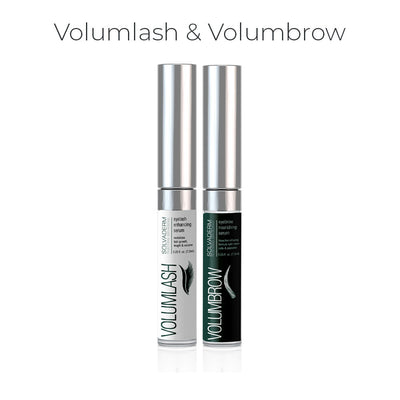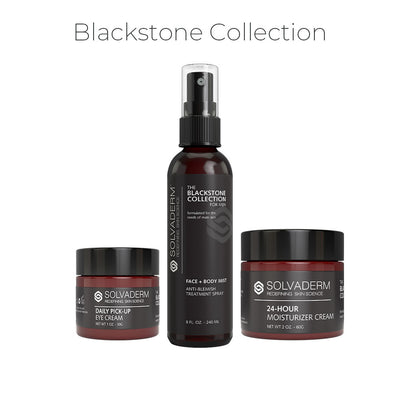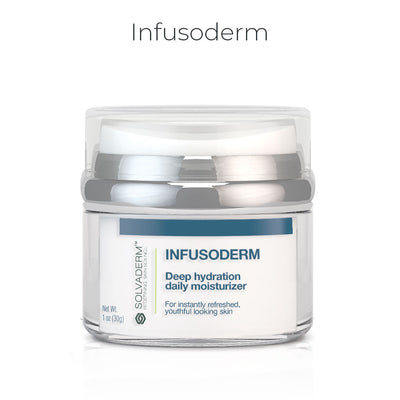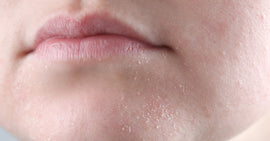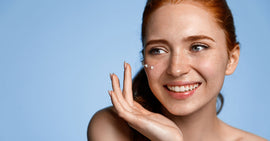Acne is a common problem. About 85% of those aged 12 to 24 years old have experienced it at some point.
Acne can be frustrating but nodular acne is particularly problematic. These types of pimples are often very painful and can be hard to eliminate. Since they are located deep under the skin, it's recommended to seek help from a dermatologist to properly treat this type of acne.
Here is a quick look at what nodular acne is and what the available treatment and prevention methods are.
What Is Nodular Acne?
Nodular acne is a severe form of acne that results in the development of firm knots or lumps beneath the skin. These bumps do not come into contact with the surface of the skin, making it impossible to pop or extract them.
They don’t typically have a blackhead or whitehead in the middle. What makes them particularly annoying is the fact that they can stick around for weeks, if not months.
According to studies, Cutibacterium acnes, a type of bacteria, can worsen the condition. It gets trapped within the nodules, causing inflammation and infection. Without proper treatment, these nodules can result in severe and permanent scarring.
How to Identify Nodular Acne
Nodules can sometimes have the same color as your skin, but more often than not, you'll notice redness and inflammation. This occurs because your immune system is actively working to break down and absorb sebum, debris, and dead skin.
You can identify nodular acne by observing its surface. Some key points are:
- The size is often 5 mm or more in diameter.
- Pain sensitivity.
- Poking it can make it inflamed.
- No blackheads or whiteheads in the center.
Since nodule acne is located in the dermis where collagen is present, it often causes scarring. These nodules displace the collagen and the inflammation surrounding them can harm the collagen, leading to long-term effects.
What Does Nodular Acne Look Like?
You can develop a single nodule acne or multiple ones at once. Dermatologists often refer to these as “blind pimples” because they form beneath your skin and affect the dermis, indicating their relatively deeper location.
Unlike other pimples, this one doesn't contain pus and causes pain and discomfort when pressure is applied due to nerve inflammation.
Locations on the Body Where Nodular Acne Is Commonly Found
Individuals assigned male at birth often develop acne on their back, face, or chest. On the other hand, those assigned female at birth are more likely to experience acne nodules around their chin or jawline.
It is a common assumption that only teenagers suffer from acne. However, this is not entirely true. According to a survey conducted on over 1,000 patients, 53.3% of women reported that their acne improved as they grew older. However, 50.9% of women in their 20s and 35.2% in their 30s stated that they still experience acne breakouts.
Nodular Acne Causes
Idiopathic nodular acne can occur due to a combination of factors such as genetics and hormonal changes. It's difficult to determine the exact cause of these breakouts. Here is a quick look at the potential contributors.
1. Blocked Skin Pores
The nodule starts to form when the pores get clogged with all kinds of impurities, sebum, and bacteria.
2. Age and Lifestyle
Clinical research shows that factors such as smoking, depression, anxiety, and obesity can make you prone to acne. As a teenager, you may develop them more often.
3. Too Much Sweating
When we sweat excessively, bacteria, dirt, and oil accumulate on the skin. This can result in acne.
4. Genetics
People with a family history of acne are more likely to develop them.
5. Specific Medications
Drug-induced acne can happen as a side effect of specific medications. These can include vitamin B12, corticosteroids, thyroid hormones, antibiotics, halogen compounds, etc.
6. Changes in Hormone
The skin produces more oil during hormonal fluctuations, like during menstruation, ovulation, and pregnancy. This excess oil, along with the bacteria trapped in the pores, can cause nodules to form.
Is Nodular Acne the Same Thing as Cystic Acne?
Cystic and nodular acne are quite alike, but not the same.
Cystic acne is a bump that appears under the skin. They have a much softer texture because it is filled with pus.
Nodules are more rigid, intensely painful, and feel like knots beneath your skin. They are harder, larger, and more uncomfortable. You can develop both nodules and cysts at the same time.
Treatment Options for Nodular Acne
Want to know how to get rid of nodule pimples? Talk to your dermatologist. Only a certified expert can determine the best course of action. Here are the options they can suggest.
1. Topical Medications
Prescription nodular acne treatment can mitigate the symptoms and reduce the risk of scarring.
Your dermatologist may suggest:
- Antibiotics
- Salicylic acid
- Benzoyl peroxide
- Retinoids
2. Oral Antibiotics
If nodular acne is consistently spreading or coming back, it could mean that you have excessive P. acne bacteria. In cases such as these, oral antibiotics (i.e. tetracycline or macrolide) can be a viable nodular acne treatment. They can alleviate the inflammation, pain, and discomfort.
How To Prevent Nodular Acne
The prevention strategies below can help.
1. Follow a Proper Skin Care Routine
Every person's skin is unique. Consistent care maximizes benefits and minimizes breakouts and flare-ups.
2. Wash the Affected Area Twice a Day
Regular washing removes all these impurities, leaving you with a fresh and clean surface.
3. Apply Cleanser Regularly
Options like the Rejuvoderm Clarifying Cleanser not only cleanse the skin from all the makeup and bacteria but also even out your tone and clear the blemishes. The cleanser exfoliates and promotes hydration and elasticity.
4. Use Moisturizer Daily
A moisturizer camouflages the blemishes. It can take care of dryness and rejuvenate the skin.
5. Use Serum
The Zeroblem Blemish Treatment Serum can help boost the natural healing process. It gives the skin all the nourishment it needs to care for the blemishes, irritation, and redness. It is gentle on the skin and can dry up the pimples.
6. Use Toner
The Maxatone Clarifying Toner is a botanical-based formula that curbs redness, swelling, and irritation. Thanks to the leaf and flower extracts, it can boost the skin’s renewal and calm inflammation.
7. Don’t Scrub the Affected Area of the Skin
Exfoliating and scrubbing too much can irritate and inflame the skin.
8. Keep Your Hair Clean
If your hair gets too oily, wash it more often or pull it back and away from your face.
9. Apply Sunscreen Regularly
The sun's UVA and UVB rays can accentuate hyperpigmented areas, hinder the fading of acne scars, and even trigger more acne breakouts.
10. Don’t Pop the Pimples
If you push, squeeze, or pinch the nodule, you will push the bacteria and debris deeper into the skin.
11. Avoid Touching Your Face
Your hands can get very dirty. You can transport that dirt on your face.
12. Stay Hydrated
Drinking water doesn’t eliminate the acne. But it does hydrate the skin cells.
FAQs
Is nodular acne serious?
It can be. This is the type of acne that requires treatment otherwise it can scar the skin.
Is nodular acne permanent?
It is often a daunting task to take care of the acne. But, a dermatologist can create a personalized treatment.
Is nodular acne cancerous?
Acne and nodular melanoma can look similar as they both can form under the skin, but nodular melanoma is a form of cancer that should not be mistaken for acne.
Does stress cause nodular acne?
Stress is not exactly the root of your problem but, it can make it worse.
What color is nodular acne on the skin?
It can blend in with the rest of your skin tone, but it can also look like a red bump.
Conclusions
Severe acne nodules are painful and you need to consult with a dermatologist. Your patience will be required since treatment may take time.
References
1] https://www.healthline.com/health/beauty-skin-care/nodular-acne#treatment
2] https://www.kolorshealthcare.com/blog/nodular-acne-and-treatment-options-causes-prevention/
3] https://bebodywise.com/blog/nodular-acne/
4] https://blog.walgreens.com/health/skin-health-conditions/nodular-acne.html
5] https://www.olivaclinic.com/blog/nodular-acne-treatments-and-causes/
6] https://curology.com/blog/how-to-help-treat-and-prevent-nodular-acne/
7] https://www.yalemedicine.org/conditions/acne
8] https://my.clevelandclinic.org/health/diseases/22888-nodular-acne
9] https://www.ncbi.nlm.nih.gov/books/NBK459173/
10] https://www.ducray.com/en-gb/acne/nodular-acne
11] https://www.ncbi.nlm.nih.gov/pmc/articles/PMC5300732/
12] https://www.ncbi.nlm.nih.gov/pmc/articles/PMC7527424/
13] https://www.ncbi.nlm.nih.gov/pmc/articles/PMC3900370/
14] https://www.mayoclinic.org/diseases-conditions/acne/diagnosis-treatment/drc-20368048


